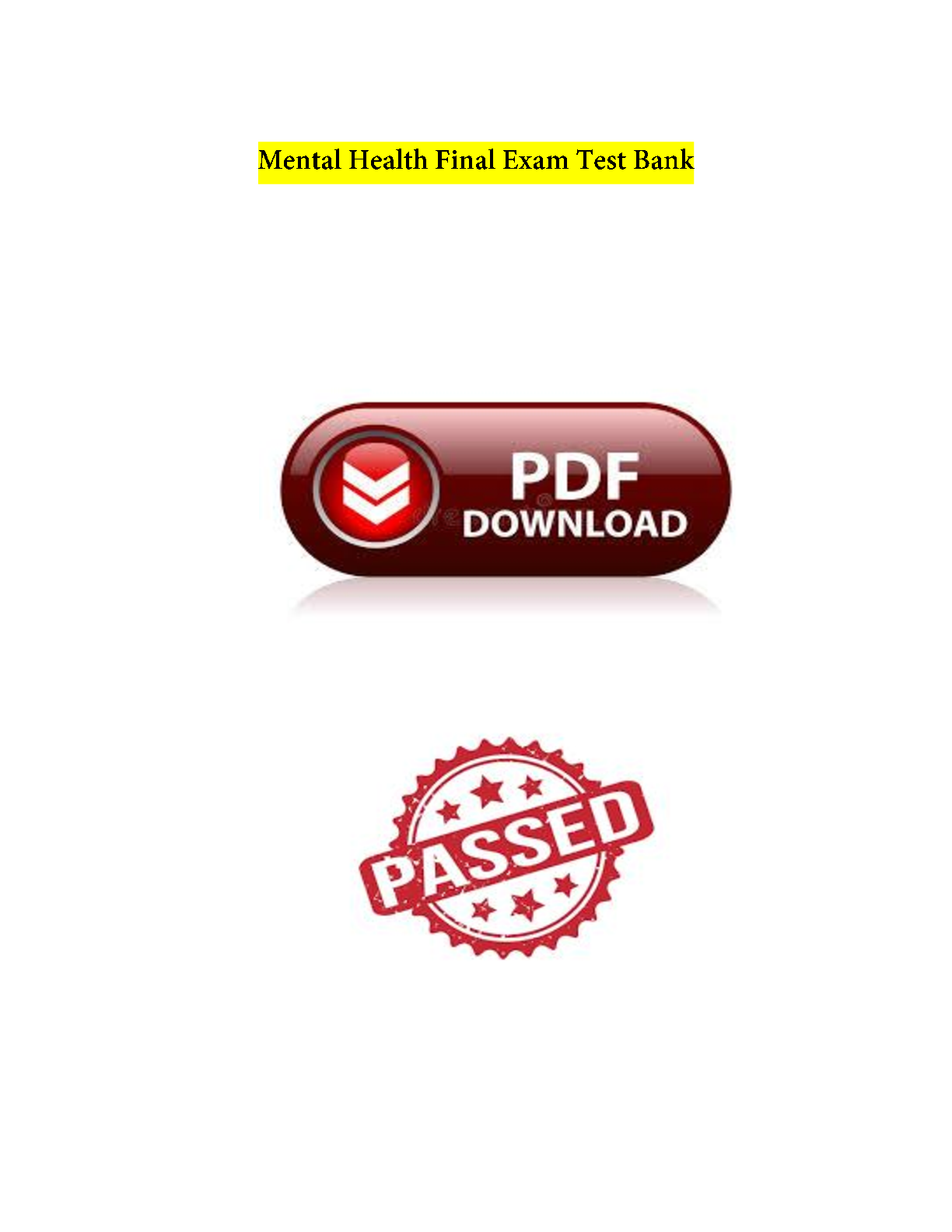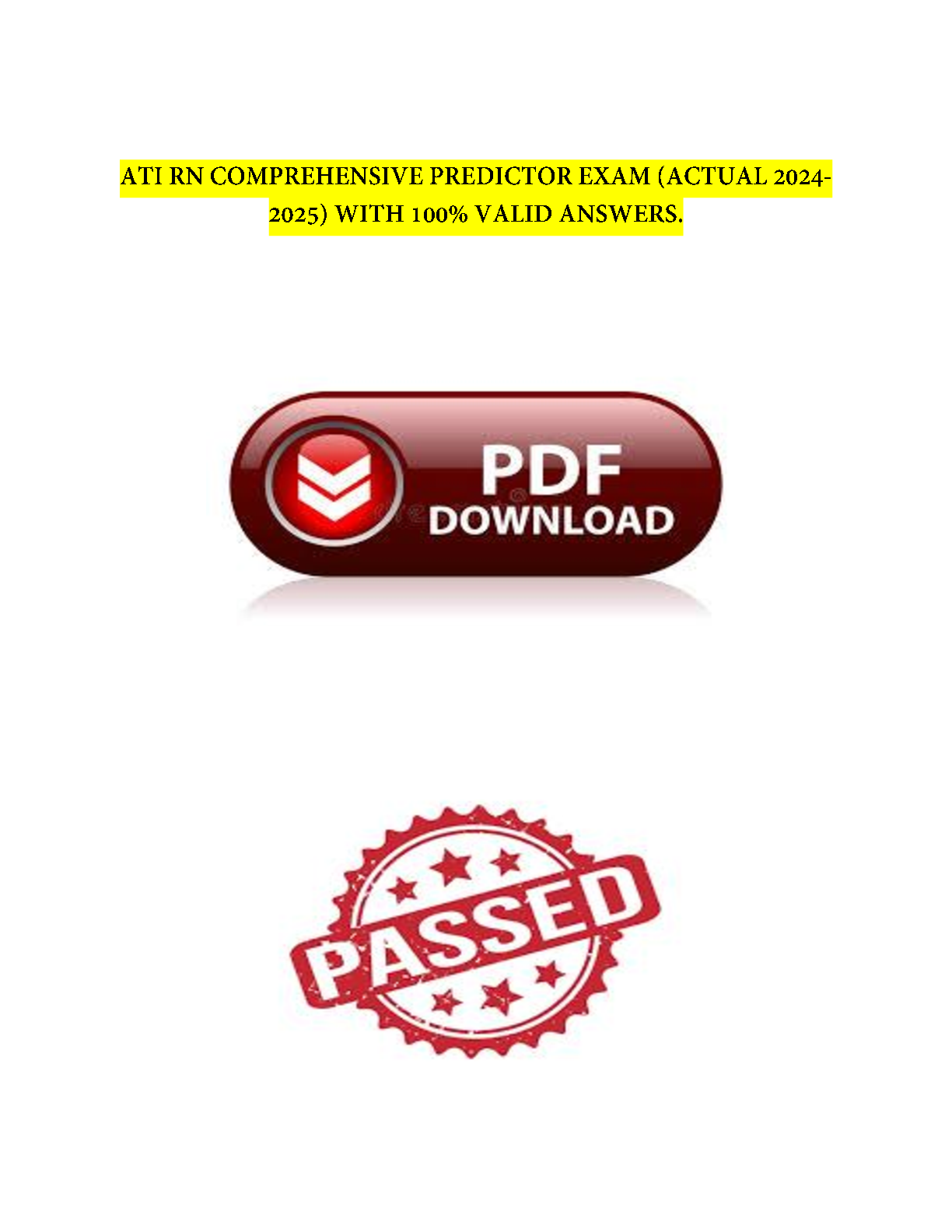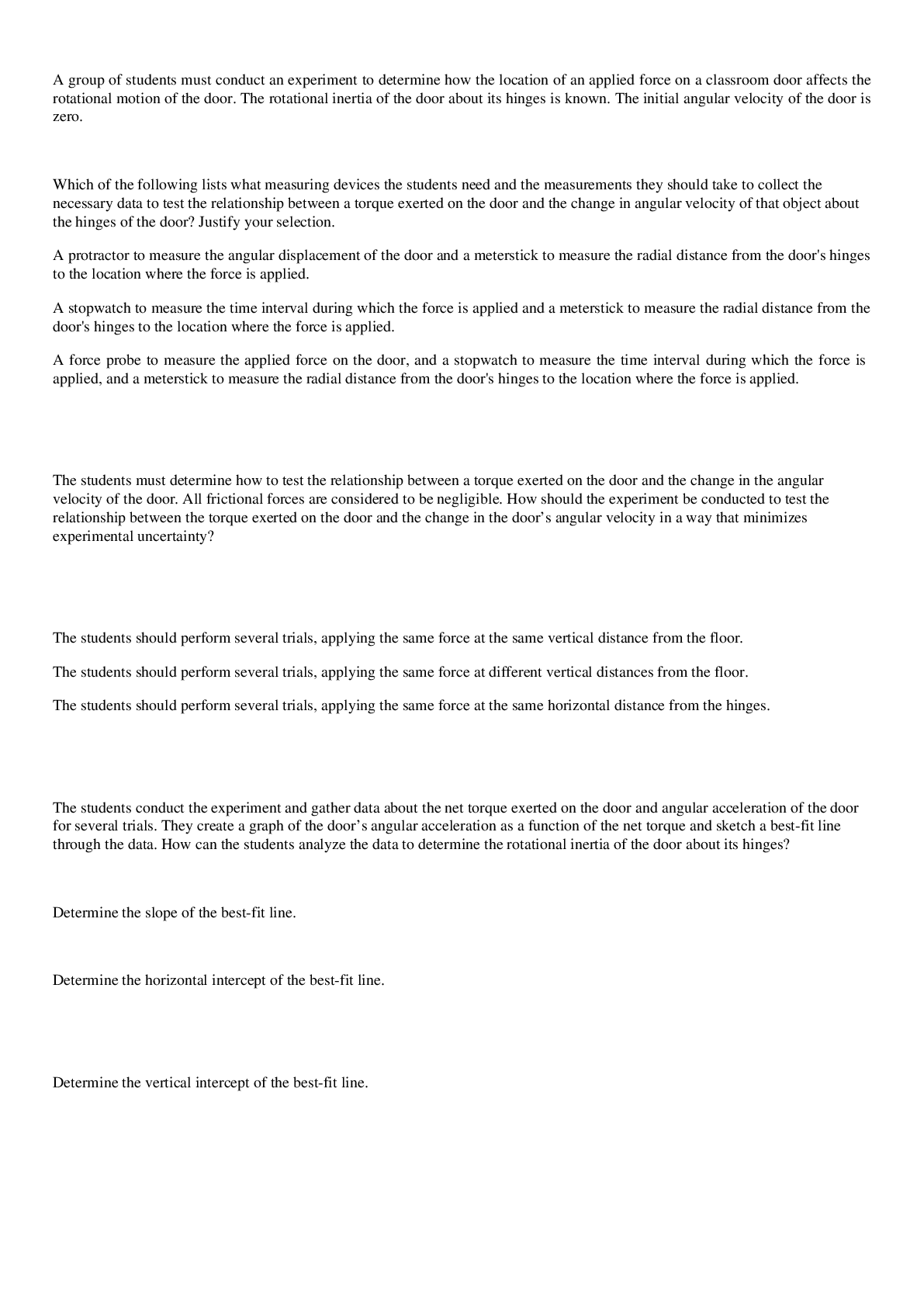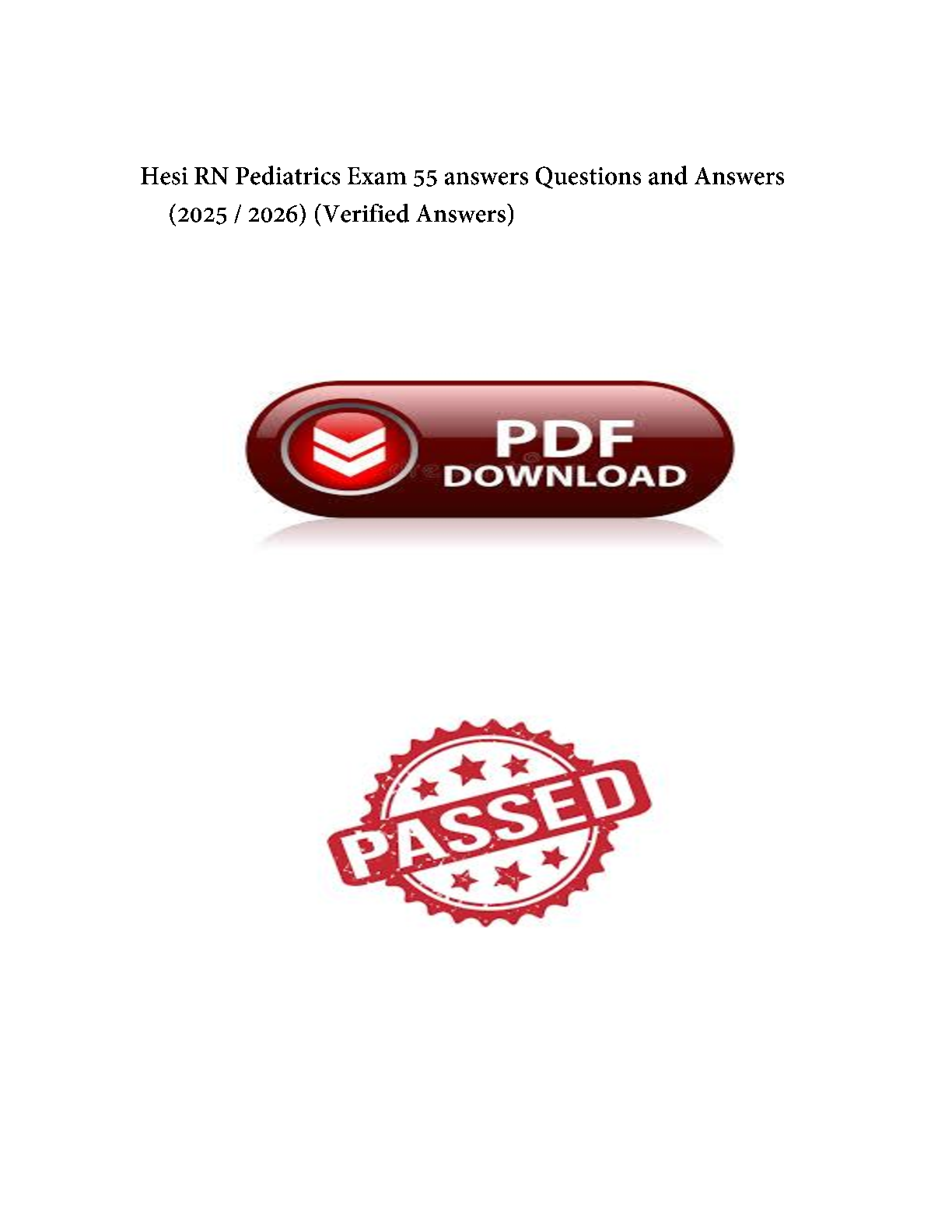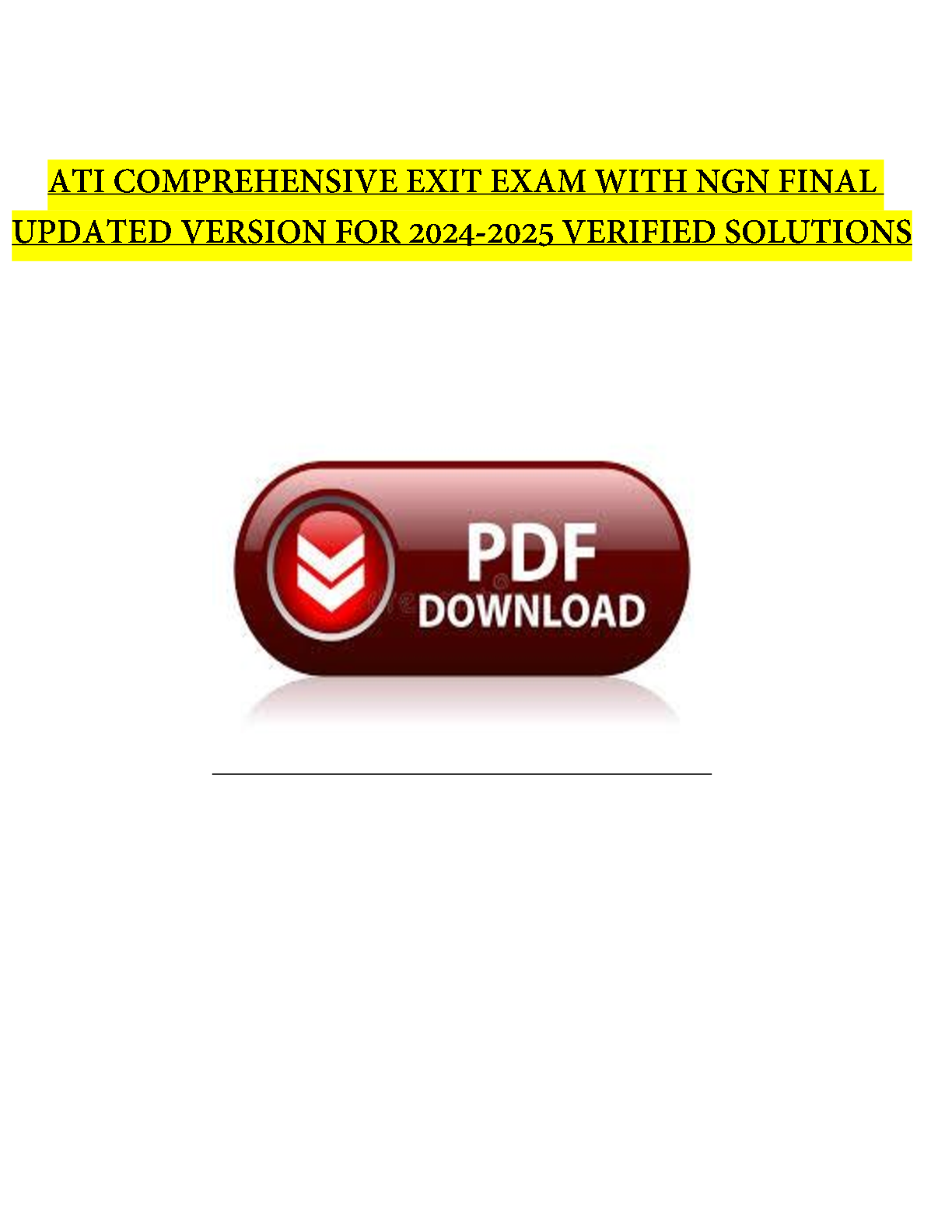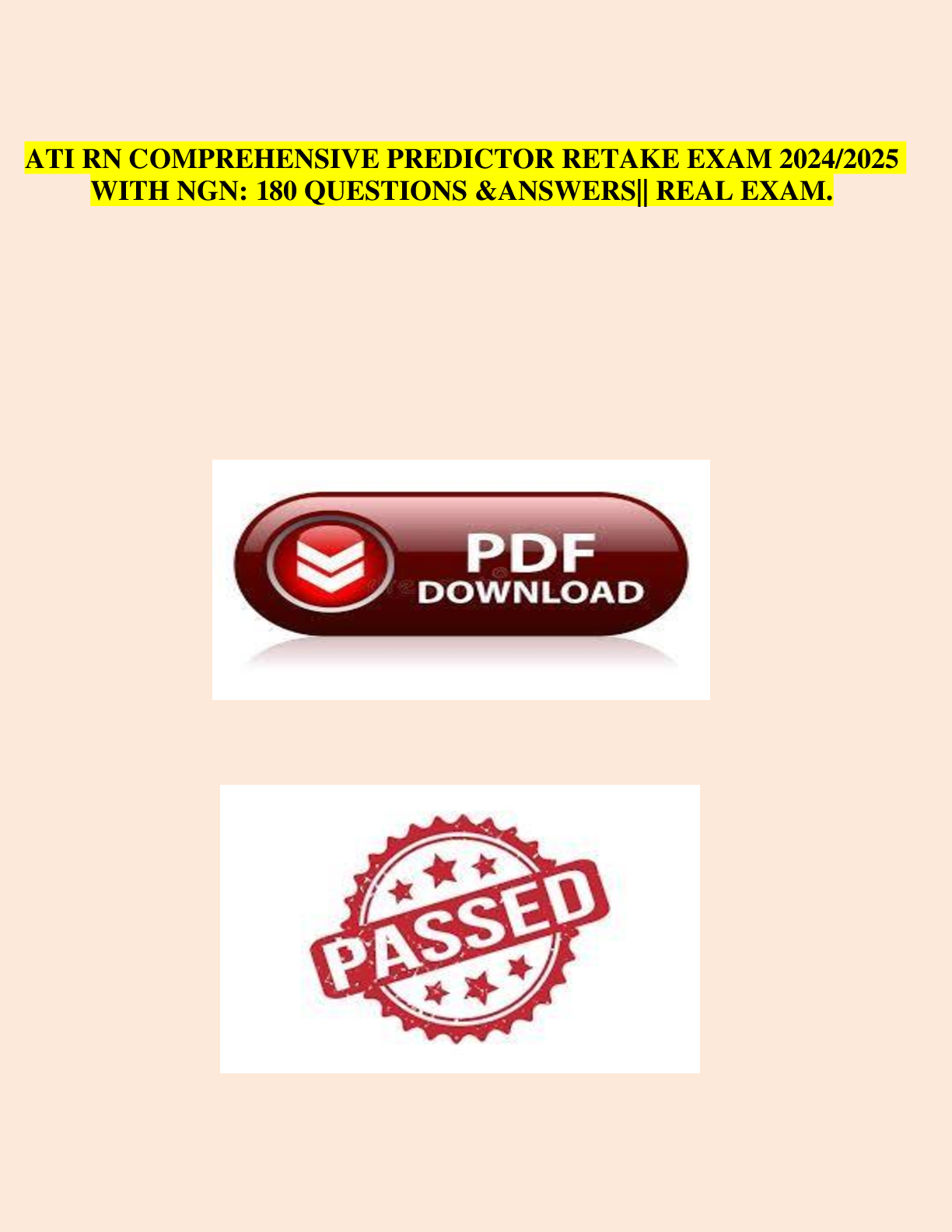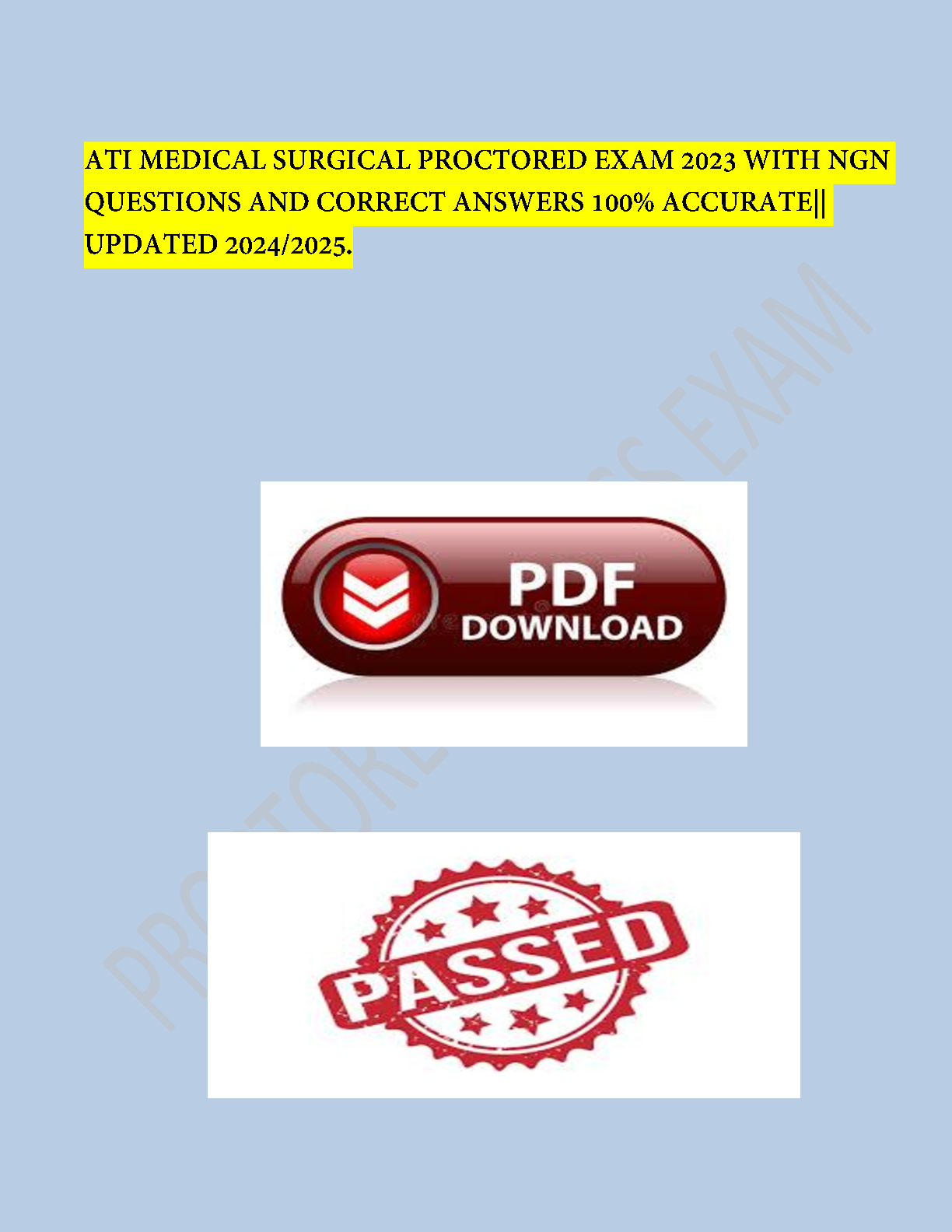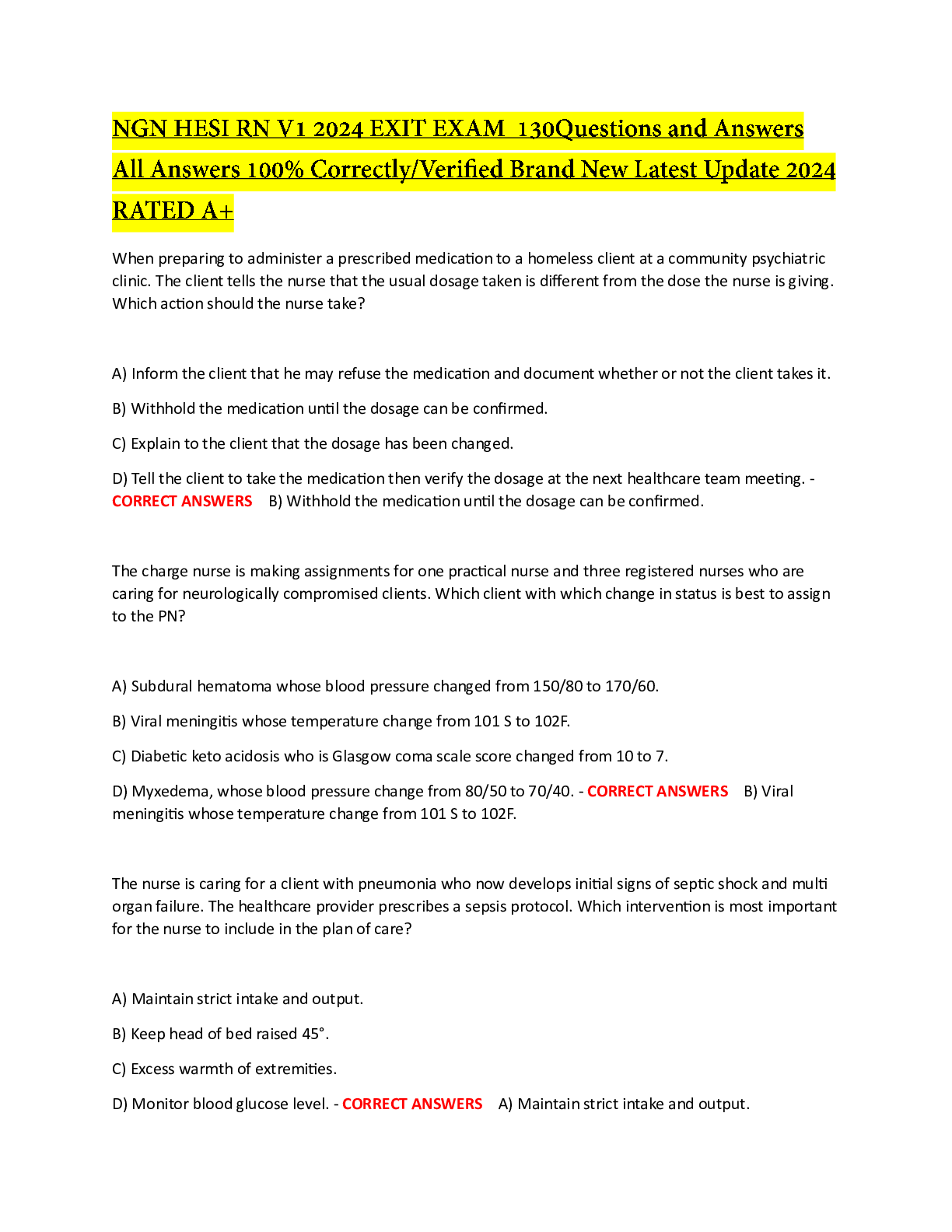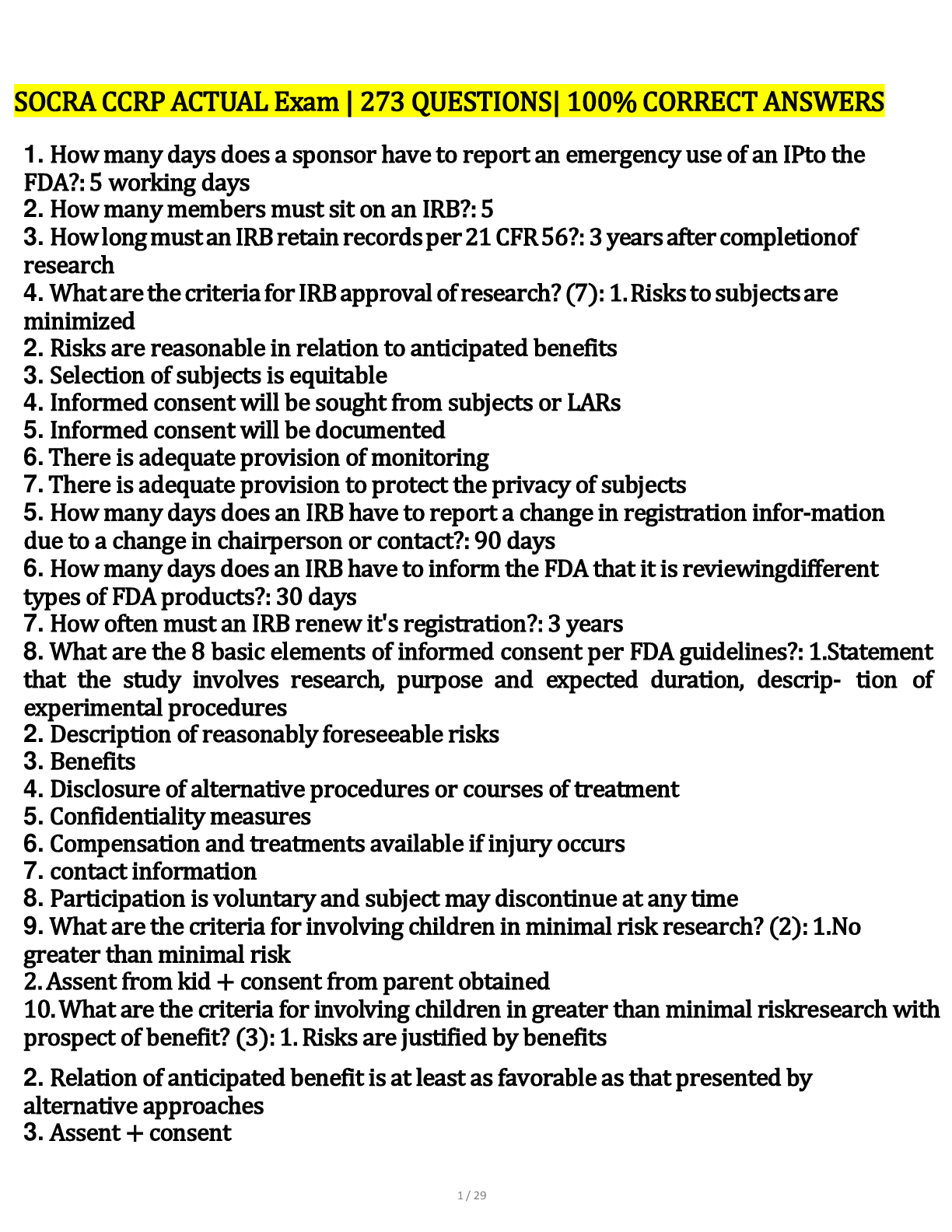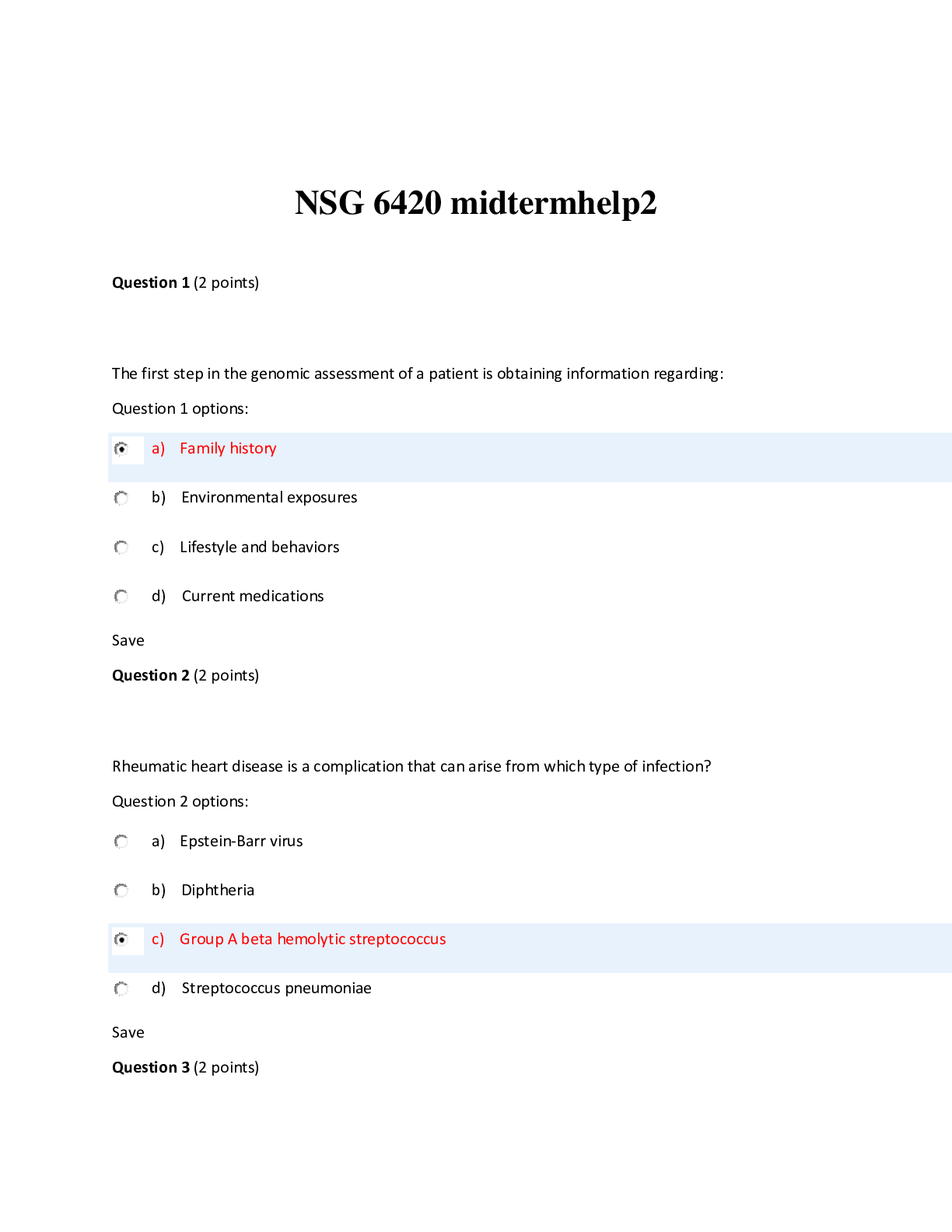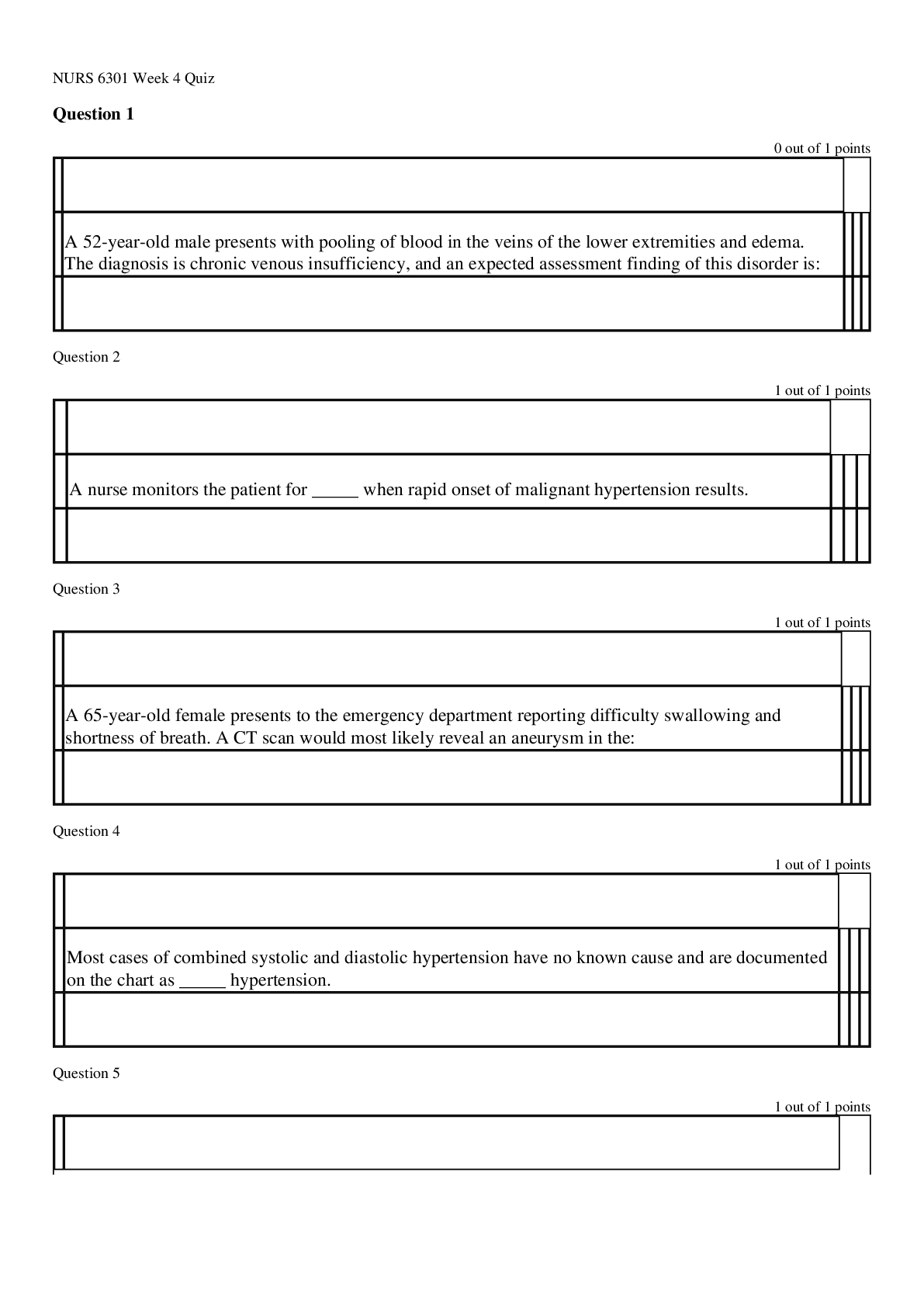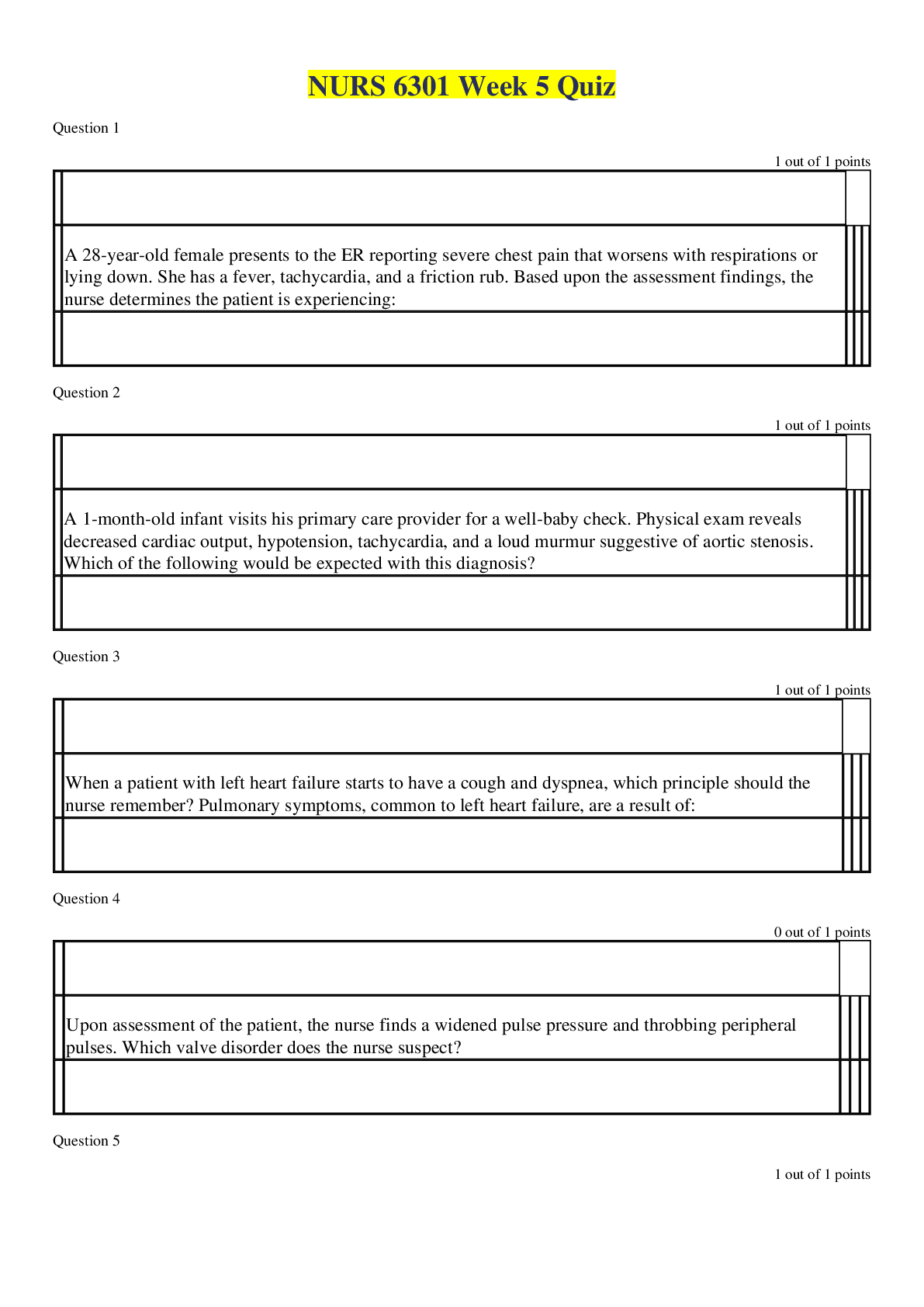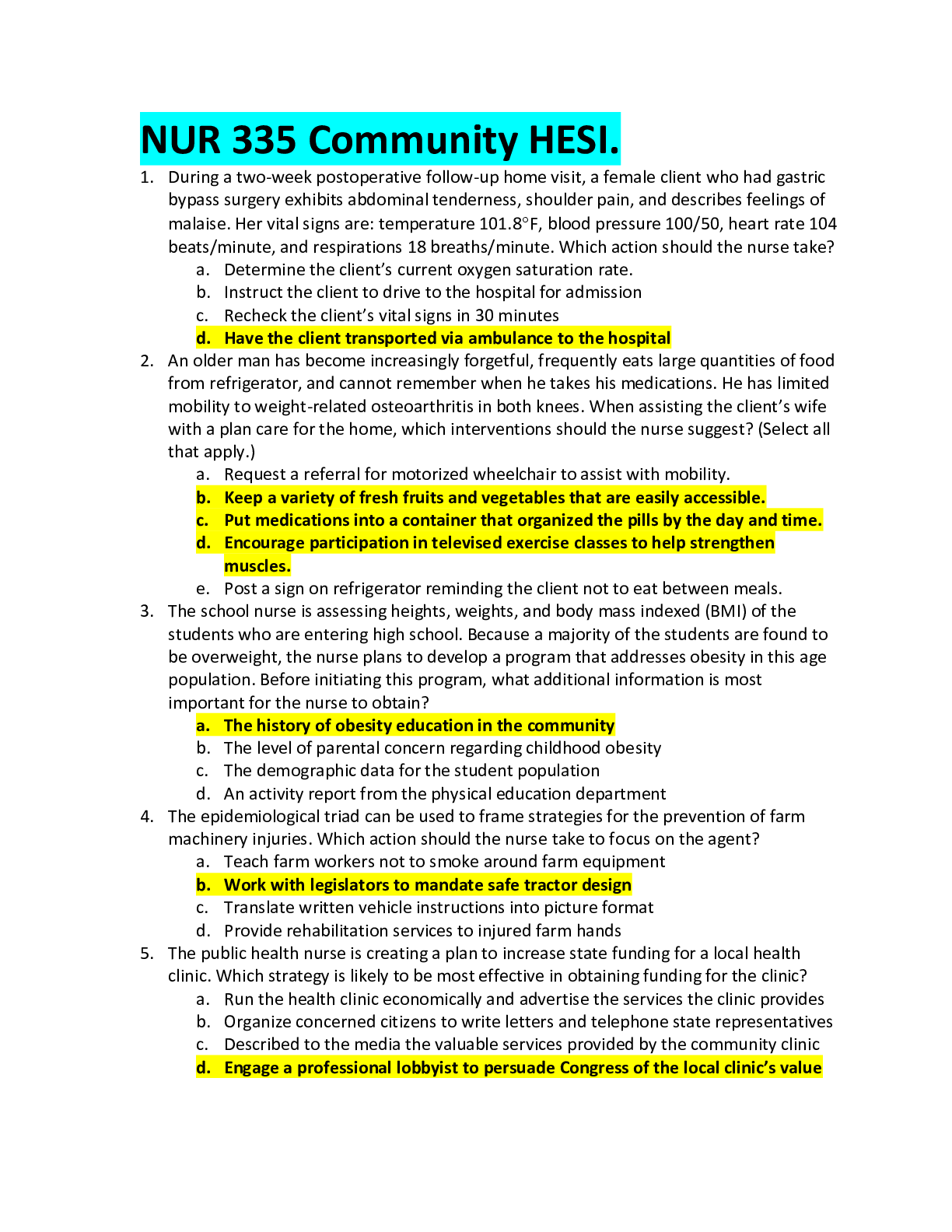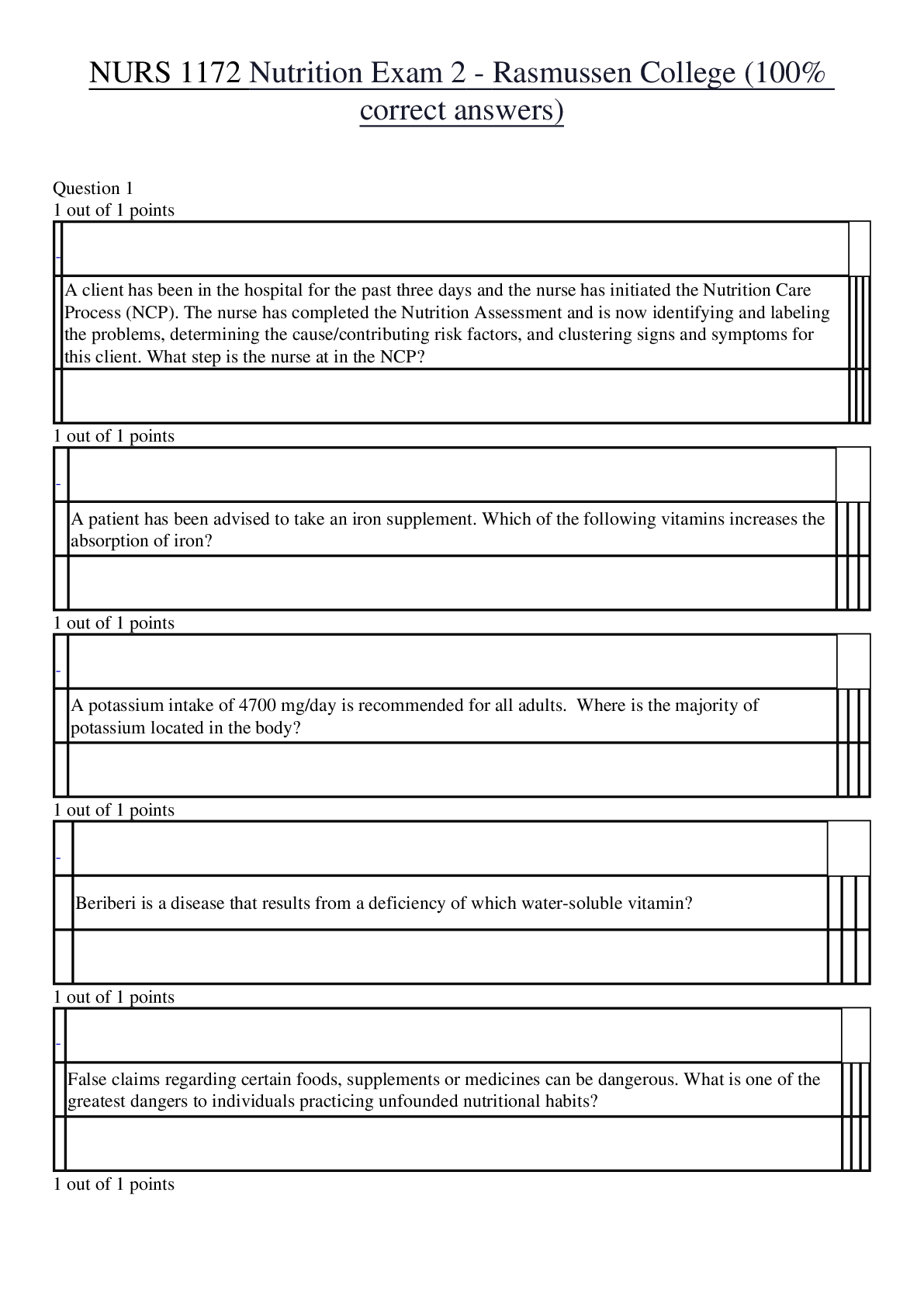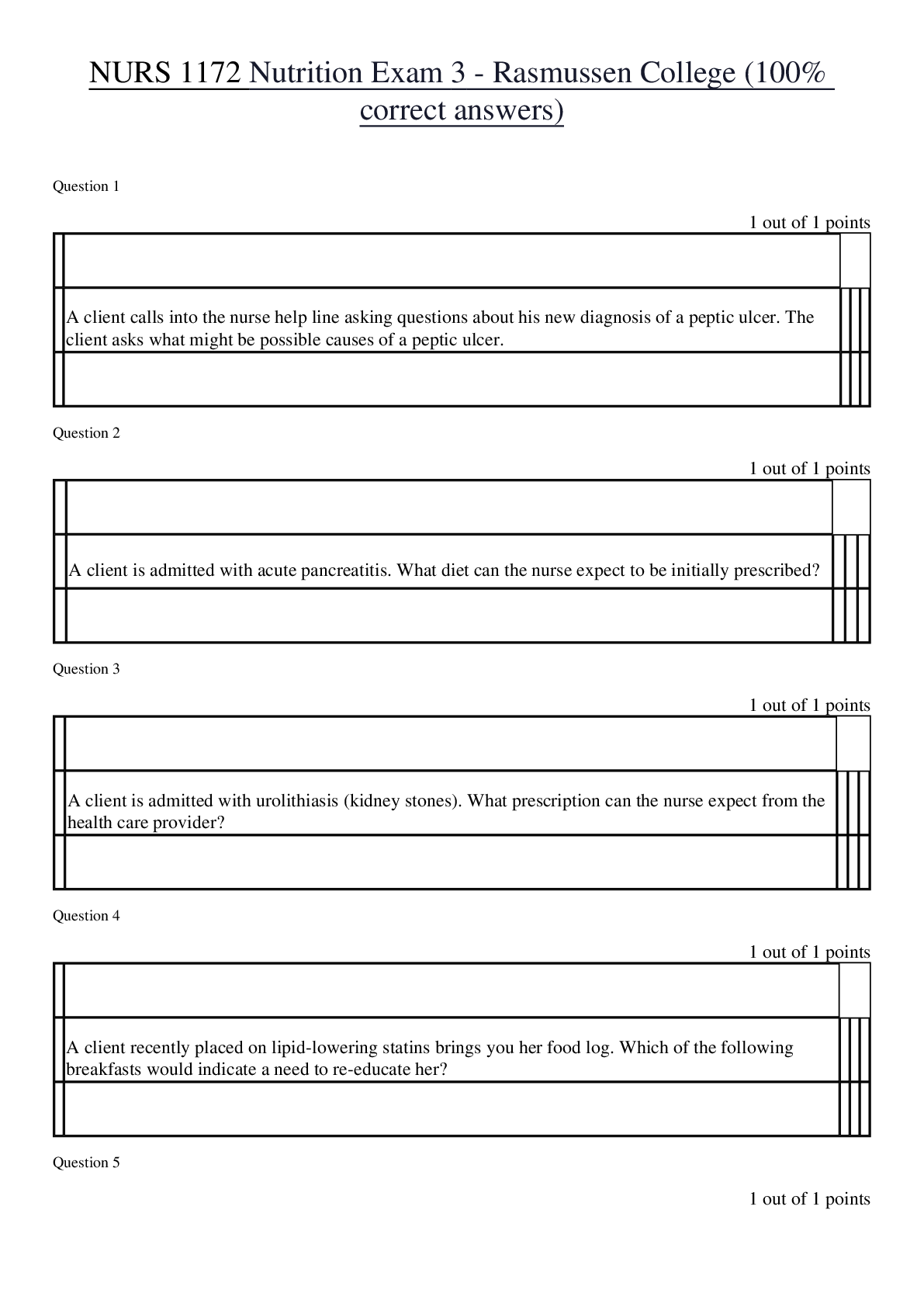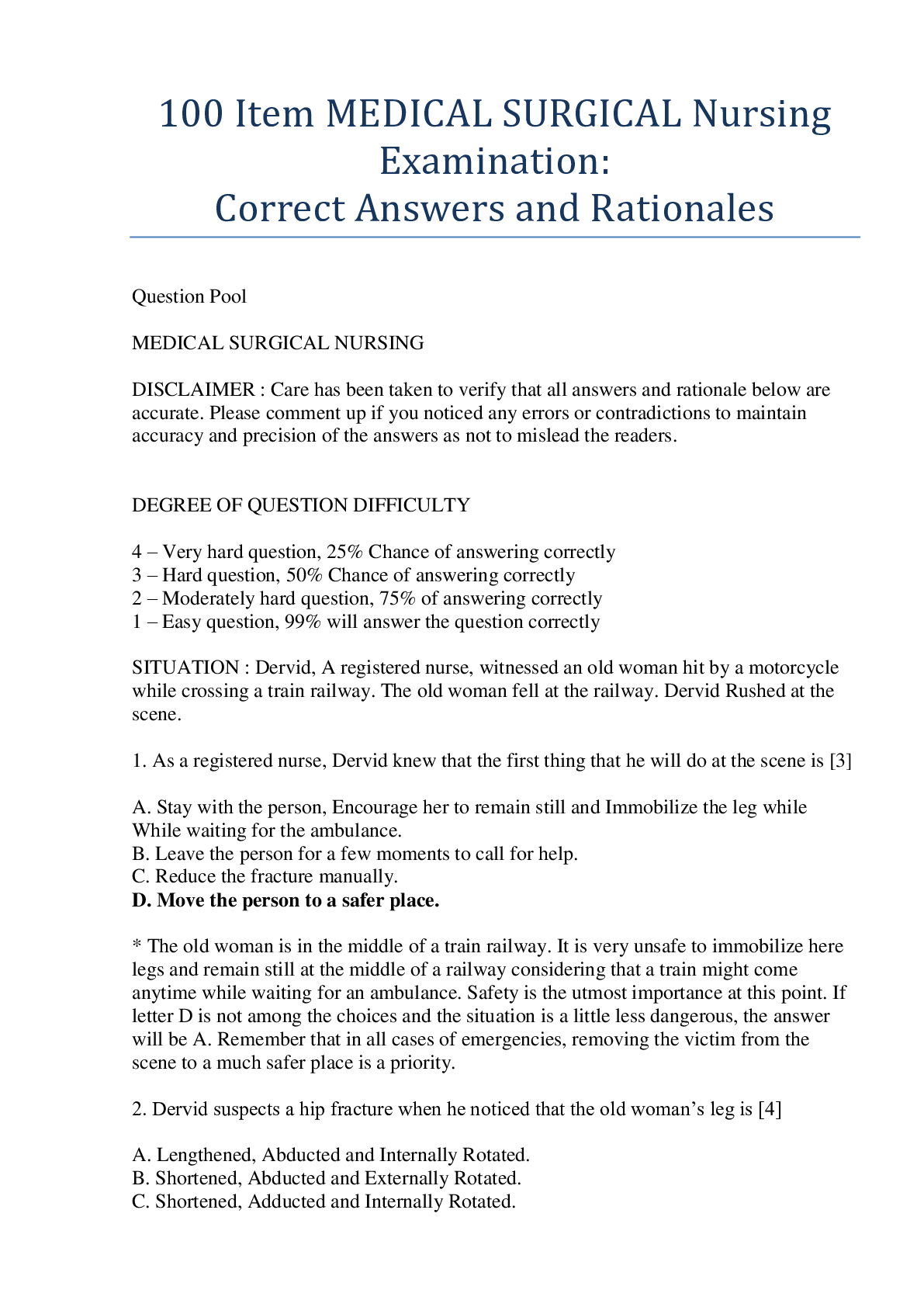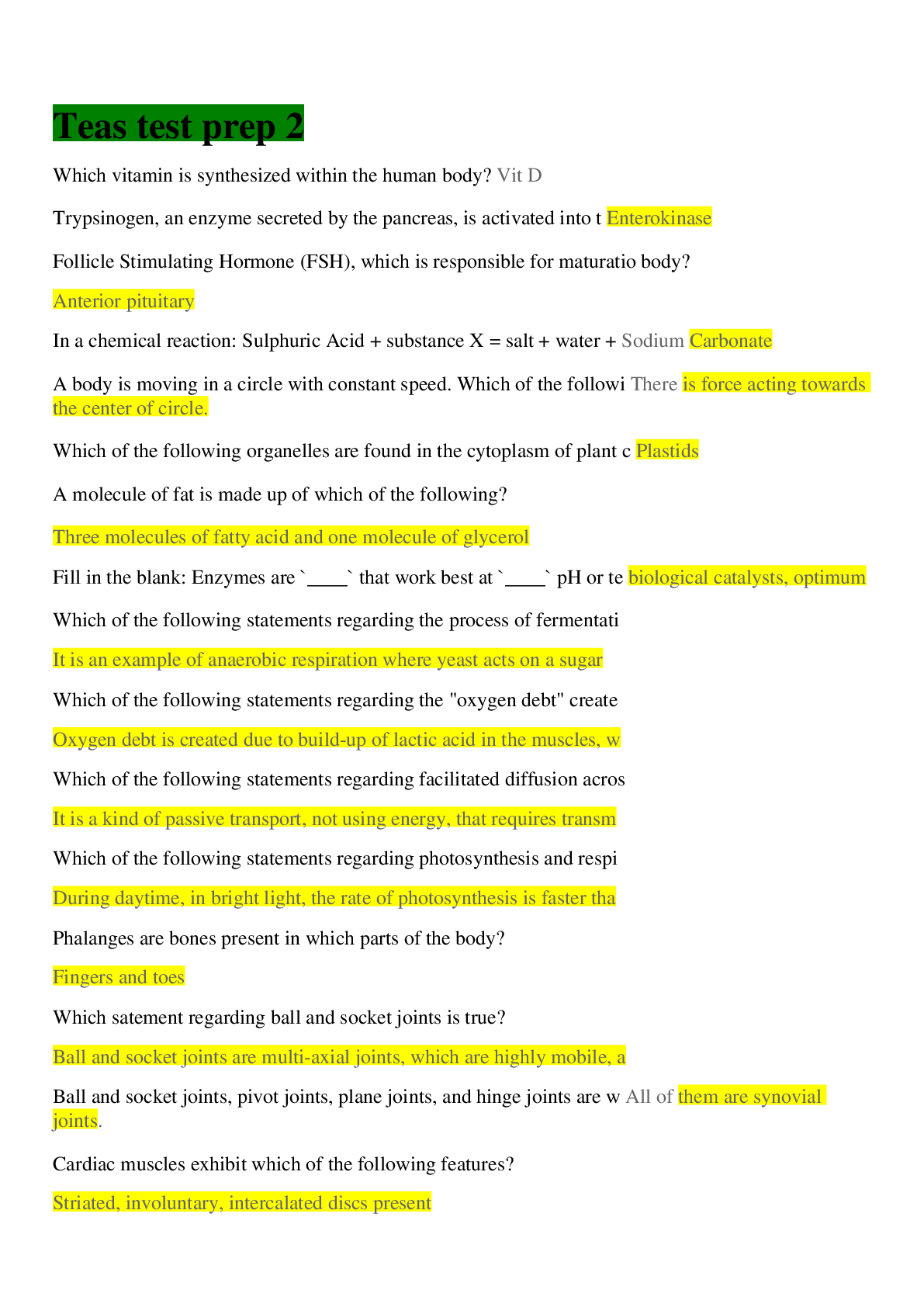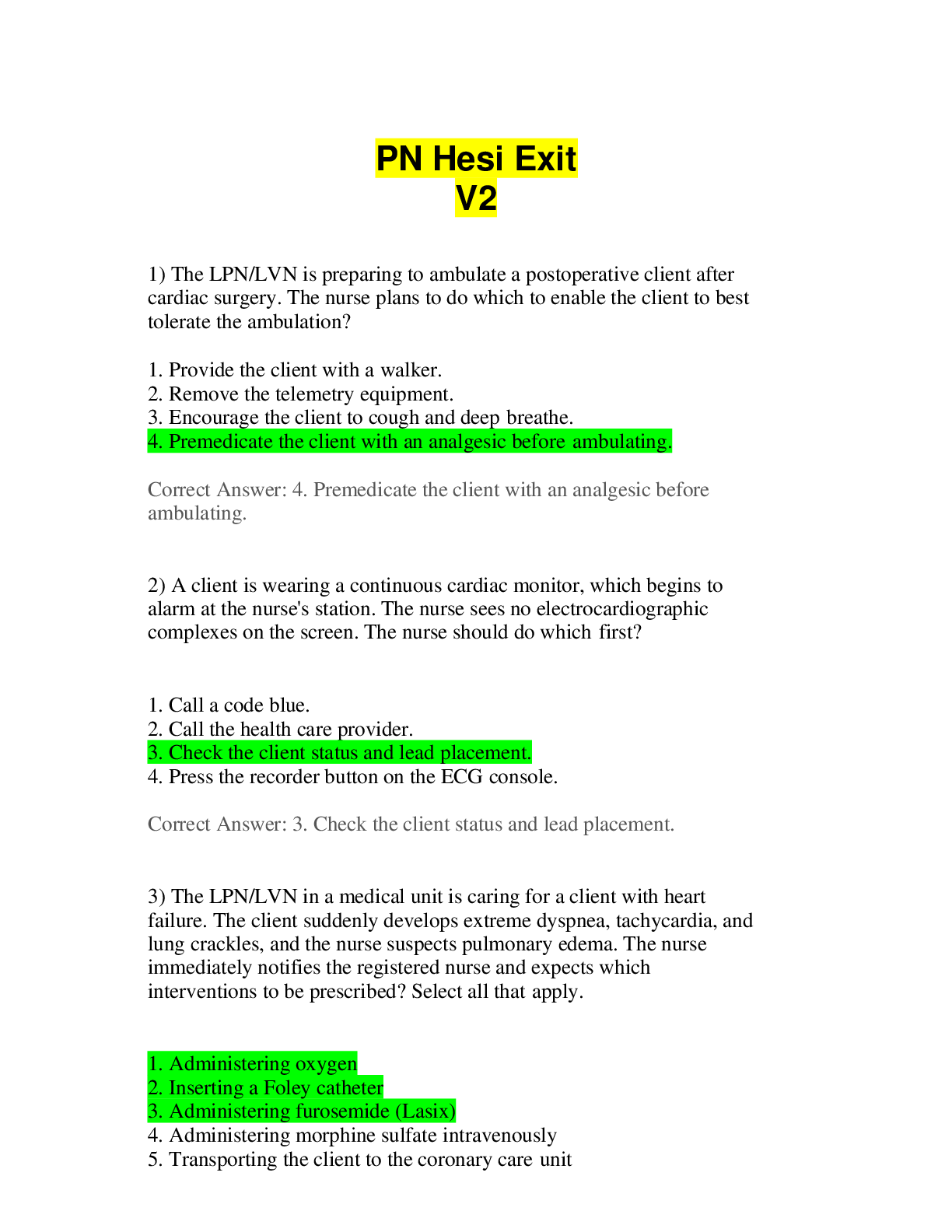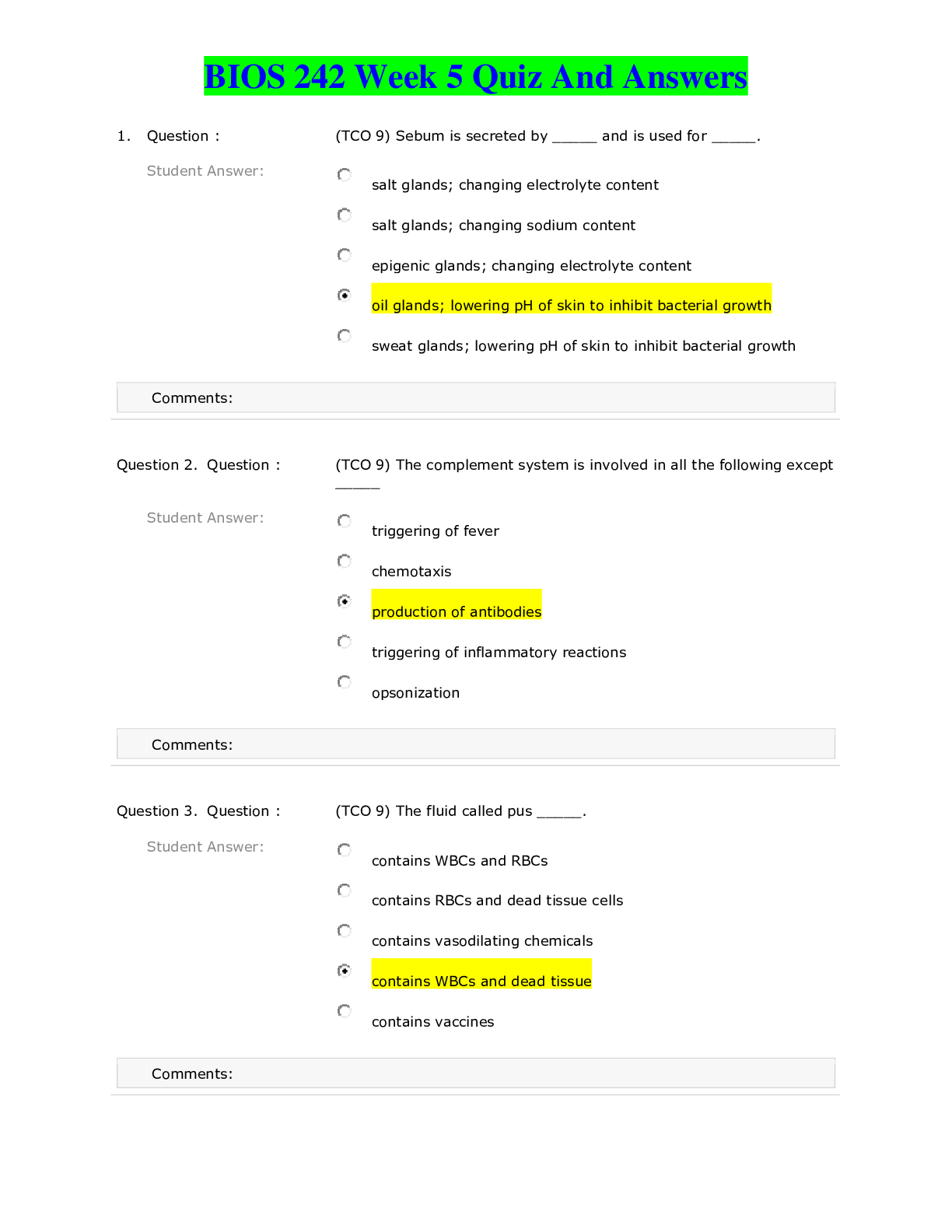Healthstream Test Exam Questions With 100% Correct Answers 2023-2024
Document Content and Description Below
A patient assessment reveals distended neck veins, pulsus paradoxus, and decreased systolic pressure. This assessment is most consistent with: - Answer- cardiac tamponade. The nurse is caring for a pa... tient with severe sepsis and third-degree heart block. The patient is hypotensive. The treatment for this life-threatening rhythm change includes: - Answer- transcutaneous pacing. A patient is admitted to the ICU with suspected cervical spinal cord injury following a motor vehicle accident. The most important nursing intervention for this patient is to: - Answer- immobilize his head. The nurse assesses a patient's chest tube drainage 2 hours following thoracic surgery. The total drainage in the system is 200 mL. The nurse knows that: - Answer- this is an excessive amount of drainage The patient being admitted requires CRRT therapy. The nurse assigned to admit the patient has not been educated on this therapy. The charge nurse adjusts the assignment so that a nurse with 3 years experience in CRRT therapy is assigned to the patient. This type of decision making is an example of: - Answer- the synergy model for patient care. The patient diagnosed with acute tubular necrosis (ATN) and experiencing severe dehydration, sepsis, and pneumonia is now in the polyureic stage of ATN. The most important nursing action is to: - Answer- monitor electrolyte levels and signs of fluid depletion. A patient has an elevated central venous pressure (CVP) measurement. The most likely reason is: - Answer- right heart failure. Diabetes insipidus is usually treated with - Answer- vasopressin. Which physiologic effect is produced by alpha-1 receptors? - Answer- Vasoconstriction The patient experiencing an acute myocardial infarction (AMI) arrived on the unit an hour ago with TPA infusing. Initially, the patient's neurologic exam was normal. The nurse assesses the patient and finds him now disoriented. The next nursing action should be to: - Answer- discontinue the TPA. A patient has cardiomyopathy and is unstable. The nurse understands that the treatment goal is to improve contractility, reduce preload and reduce afterload. The [Show More]
Last updated: 10 months ago
Preview 3 out of 8 pages

Loading document previews ...
Buy this document to get the full access instantly
Instant Download Access after purchase
Buy NowInstant download
We Accept:

Reviews( 0 )
$10.00
Can't find what you want? Try our AI powered Search
Document information
Connected school, study & course
About the document
Uploaded On
Sep 02, 2024
Number of pages
8
Written in
Additional information
This document has been written for:
Uploaded
Sep 02, 2024
Downloads
0
Views
35

